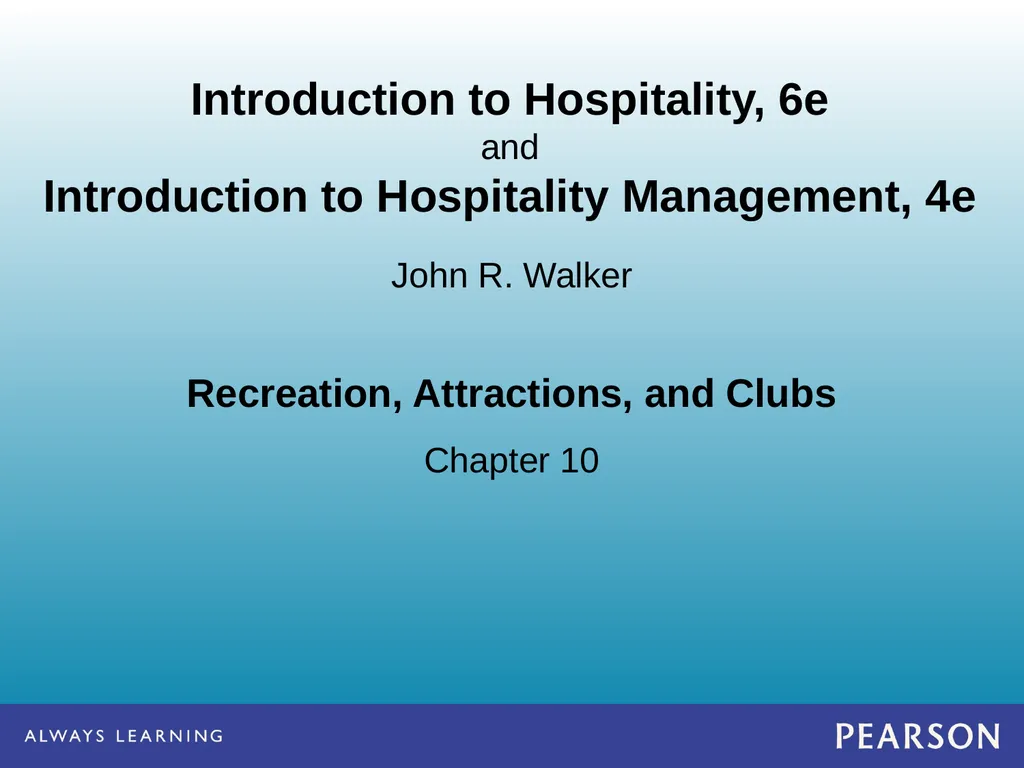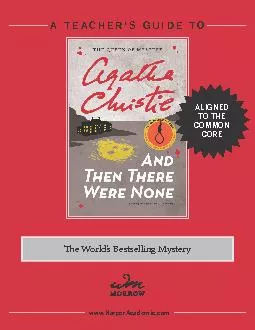
Author : cheryl-pisano | Published Date : 2025-05-19
Description: Recreation, Attractions, and Clubs Chapter 10 John R. Walker Introduction to Hospitality, 6e and Introduction to Hospitality Management, 4e Recreation, Leisure, and Wellness The word recreation is defined as the use of time for therapeuticDownload Presentation The PPT/PDF document "" is the property of its rightful owner. Permission is granted to download and print the materials on this website for personal, non-commercial use only, and to display it on your personal computer provided you do not modify the materials and that you retain all copyright notices contained in the materials. By downloading content from our website, you accept the terms of this agreement.
Here is the link to download the presentation.
"Recreation, Attractions, and Clubs Chapter 10 John"The content belongs to its owner. You may download and print it for personal use, without modification, and keep all copyright notices. By downloading, you agree to these terms.













